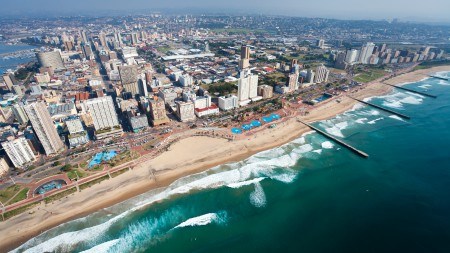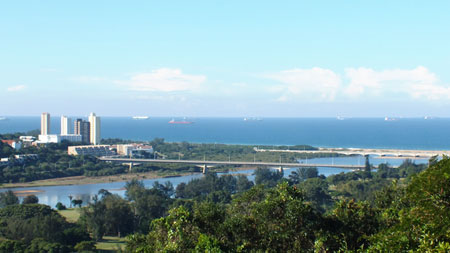With house prices on an upward climb, it is getting trickier and trickier for first-time buyers to enter the market for below R1.5 million.
“From a national perspective, Lightstone Property’s figures reflect that 25.2% (up from 21.97% in Q1 2018) of all property transfers for the first quarter of 2019 fell within the R800,000 and R1.5 million price bracket. While the price brackets below this have reflected a shrinking market share year-on-year, this segment has seen consistent market share growth, which points to the fact that the entry-level price bracket is shifting into more expensive territory,” explains Regional Director and CEO of RE/MAX of Southern Africa, Adrian Goslett.
According to Standard Bank’s House Price Index for March 2019, KwaZulu-Natal’s HPI grew to 4.3% y/y in March up from 4.0% y/y in February. Grant Gavin, Broker/Owner of RE/MAX Panache that operates in Durban North and La Lucia, explains that the average home price along Durban’s North Coast suburbs is now upwards of R3.2 million. “There are therefore very few purchasing opportunities under the R1.5 million mark. But, for buyers within that price range, suburbs like Park Hill, Red Hill, Greenwood Park, and Sunningdale present some good options for entry-level buyers. A few opportunities also exist in Umgeni Park, as well as Gateway,” Gavin advises.
View homes for sale in Red Hill here
In terms of what buyers can expect within this price bracket, Gavin explains that within Umhlanga, Gateway, R1.5 million will afford buyers a 1- or even 2-bed apartment. “Buyers who are searching for an entry-level, 3-bed freehold property, should look in the Red Hill and Park Hill areas. However, if buyers are searching in the more expensive suburbs like Umhlanga, they will be able to afford a 1-bed flat or apartment for R1.5 million, and not much else.”
According to Gavin, as a trend, Millennials seem to favour the option of renting in more attractive locations with larger accommodation as opposed to purchasing smaller properties or more affordable homes in less ideal areas. However, one can never discount the long-term financial benefits of buying and holding onto a property within the right area.
“My advice is always to buy as soon as you can afford to do so. I therefore recommend that first-time buyers stretch (without over-extending) themselves to buy in the best area possible. It is always difficult for the first year or two when trying to make the budget work, but, if you are in a position in which your salary will increase over time, then you need to keep in mind that it will become easier as your salary grows.”
To help make purchasing in desirable suburbs more achievable, Gavin explains how, if need be, buyers could borrow from relatives where possible so that they can afford a higher deposit and therefore lower the amount for which they will need to qualify on the home loan. Alternatively, by joining incomes and buying with friends and partners, buyers can increase the home loan amount for which they qualify.
As a final piece of advice, Goslett recommends that all first-time buyers arrange a consultation with a local real estate professional to get a better understanding of local market conditions and the various options that are available to them. “For many first-time buyers, the idea of purchasing a property is an intimidating prospect for which they feel hopelessly underqualified. Speaking to a local real estate advisor can help buyers realise that owning property is a much more realistic goal than they might first have assumed,” Goslett concludes.





